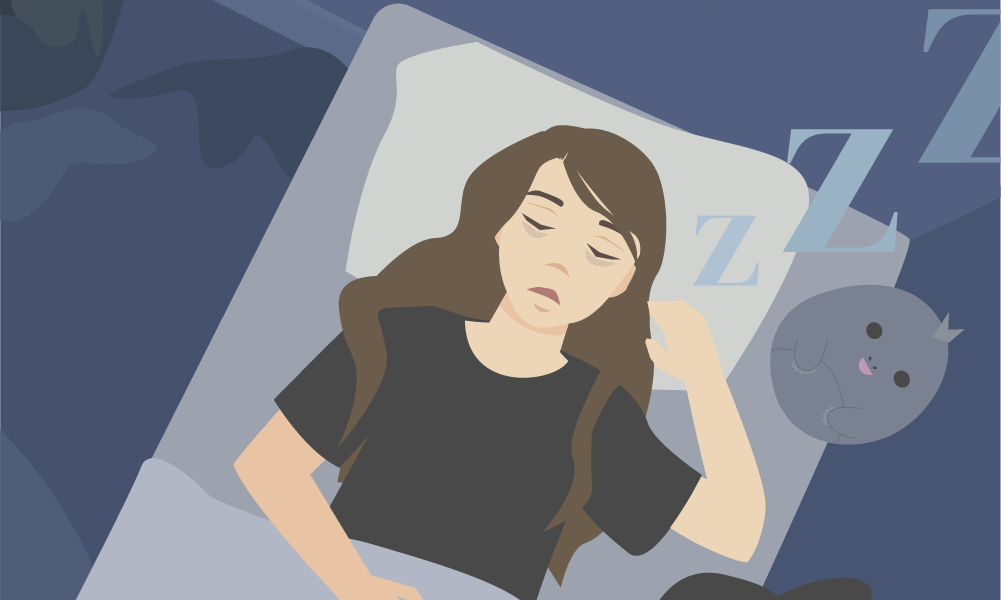Sleep Awareness Month for Teenagers: Why It Matters
Each year, March marks National Sleep Awareness Month and it’s more important than ever to make sure your teenager knows why getting enough sleep is essential. Teenagers are overscheduled and under-rested between school, extracurricular activities, and social lives. Even though they may be able to function on little sleep, the truth is that teens need just as much sleep as adults do—sometimes even more! Let’s look at why it’s so important for teenagers to get enough restful sleep.
The Dangers of Not Getting Enough Sleep
Not getting enough quality sleep can have severe consequences for your teen’s health and well-being. The recommended number of hours of sleep for a teenager is 8-10 hours per night, but about 57% of teenagers in Cortland County report not getting the recommended amount of hours of sleep.1 Teens who don’t get enough restful sleep are more likely to suffer from depression or anxiety due to their inability to properly control their emotions. In a recent survey in Cortland County, students who did not get the recommended hours of sleep are about three times as likely to report suicidal ideation as well as attempts.1 Also, 41% of students who reported not having enough sleep reported feeling depressive symptoms. 1 Teens may even be more likely to participate in risk-taking behaviors such as drinking alcohol or using drugs. In the 2022 Cortland Youth Survey, students who did not get their recommended amount of sleep were twice as likely to use alcohol in their lifetime, and 21% more likely to use cannabis in their lifetime.1
The Benefits of Getting Enough Sleep
Getting enough quality sleep is essential for teens because it helps with physical development and cognitive skills. During sleep, your body produces essential hormones to help the body grow, build muscle, repair damage, and fight off illness.3 It also helps improve memory and concentration in class, which can lead to better grades. Studies have shown that students with a regular sleep pattern are more likely to have a higher overall GPA than students with an irregular sleep pattern.2 In a recent youth survey in Cortland County, 35 % of students who did not get their recommended hours of sleep reported missing school days, and 63% of students overall reported struggling to stay awake during the past two weeks.1 Staying awake in class can have a direct impact on student’s grades, and their overall success in school.
What Can Parents Do?
As a parent of a teen (or soon-to-be teen), you can help ensure that your child gets enough quality rest by setting boundaries around screen time before bedtime and creating a designated bedtime routine that works for everyone involved—including you! Here are some ways you can achieve this:
- Set boundaries around screen time: Encourage your teen to limit their exposure to screens, such as phones, tablets, laptops, and TVs, at least 30 minutes before bedtime. This will help their brain to wind down and prepare for sleep.2
- Create a sleep-conducive environment: Make sure your teen’s bedroom is a dark, quiet, cool, and comfortable place. This will help promote sleep and reduce any distractions that could interfere with their rest.2
- Establish a bedtime routine: Creating a consistent routine can help signal to your teen’s brain that it’s time for bed. This could include:
- Reading together before bed: This can be a relaxing way to help your teen unwind before sleep.
- Listening to calming music together before lights out: Listening to relaxing music can help your teen relax and reduce any anxiety they may have.
- Having a nightly check-in about how the day went so your teen can decompress from any stressors: This can be a good opportunity to talk about any worries or concerns they have, which can help them sleep more soundly.
Sleep Awareness Month should be taken seriously by parents of teenagers everywhere! Teens need just as much—if not more—sleep than adults do in order to stay healthy and alert during school hours and beyond. Set boundaries around screen time before bedtime, create a designated bedtime routine for everyone involved (including yourself!), and encourage your teen to get some quality shut-eye each night so they can reap all the benefits associated with it! Doing these small things can go a long way when it comes to ensuring that your teenage son or daughter gets all the rest they need this month (and beyond!).
References
- Cortland Area Communities That Care (CACTC). Results and Analysis: The 2021 Cortland County Youth Survey. https://www.cortlandareactc.org/publications. May 17, 2022.
- Sleep quality: How to determine if you’re getting poor sleep. Sleep Foundation. (2023, February 23). Retrieved March 8, 2023, from https://www.sleepfoundation.org/sleep-hygiene/how-to-determine-poor-quality-sleep
3. U.S. Department of Health and Human Services. (2022, January 16). Connections between sleep and Substance Use Disorders. National Institutes of Health.https://nida.nih.gov/about-nida/noras-blog/2020/03/connections-between-sleep-substance-use-disorders#:~:text=Sleep%20deprivation%20in%20turn%20downregulates,through%20their%20main%20pharmacological%20targets



